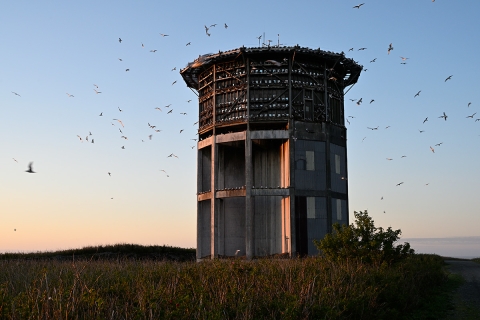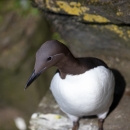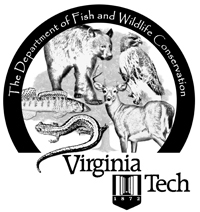
Middleton Island, situated about 60 miles off the coast in the north-central Gulf of Alaska, is home to a marine research field station facilitated by the Institute for Seabird Research and Conservation (ISRC). Research and monitoring conducted there over decades furnishes data relevant to marine ecosystem management in the Gulf and the northeastern Pacific generally.
Marine biology at the Middleton station extends a legacy of intensive research and monitoring by the U.S. Fish and Wildlife Service and U.S. Geological Survey from 1974 through 2012, channels the expertise of collaborating scientists from multiple universities, and yields time series directly relevant to climate change climate change
Climate change includes both global warming driven by human-induced emissions of greenhouse gases and the resulting large-scale shifts in weather patterns. Though there have been previous periods of climatic change, since the mid-20th century humans have had an unprecedented impact on Earth's climate system and caused change on a global scale.
Learn more about climate change interpretation and prediction. Research at the station has long set a high standard for innovation, collaboration, and productivity.
Related Stories
Partner Category
Partnership Services
Through our partnerships we are able to expand our capabilities through the inclusion of services in areas such as:
- Grant opportunities
- Sponsorship of grants
- Cooperative Agreements
To find out more about how our partner provides services view our partner services below.




